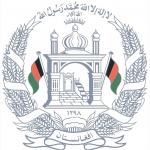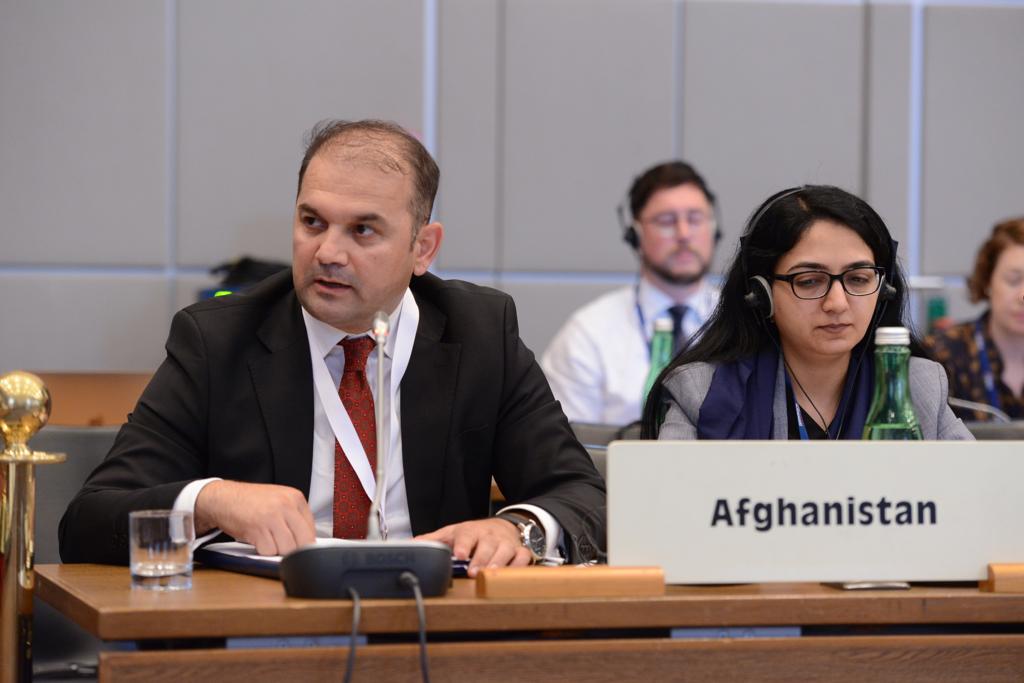Statement of the Permanent Mission of the Islamic Republic of Afghanistan
Vienna, 17 and 18 July 2023
Excellencies, Ladies and Gentlemen,
It is an honor and pleasure for me to address the 2023 OSCE Asian Conference. On behalf of my ambassador, who regrettably cannot be here today, I would like to commend Poland as Chair of the Asian Partners for Cooperation Group, and the OSCE Secretariat for their excellent coordination and dedication to co-organizing this Conference with Australia. We also thank North Macedonia as Chair-in-Office of the OSCE for its ongoing skillful leadership in a time of unprecedented challenges.
The conference theme reflects our concern over complex transnational and global threats and the need to address them collectively. In the same light, addressing the challenges emanating from the recent developments in Afghanistan is a shared responsibility that necessitates multilateral cooperation.
The challenges faced by Afghanistan are not limited to its borders; they are transnational in nature and have implications for international security, particularly within the OSCE region. In particular, the Taliban’s presence in power provides an environment that fosters terrorism. The link between the Taliban and Al-Qaida and other regional and international terrorist groups, including the Tahrik-e-Taliban Pakistan, remains strong and symbiotic. The situation on the ground has provided a favorable environment for over twenty extremist groups to operate freely, with unrestricted movement. This has allowed foreign terrorist fighters (FF’s) to carry out attacks across Afghanistan’s territory.
Furthermore, the undeniable involvement of the Taliban in the illicit narcotics industry highlights their continued engagement with the production and trafficking of narcotics. Illicit sources of finance continue as significant sources of illicit revenue for the Taliban. The Taliban have increased the number of laboratories processing opium in Helmand, Badakhshan, and Khost where it is converted into heroin and smuggled out of the country to be sold on the global market. Restrictions announced but not implemented by the Taliban on Afghan drug production have caused the wholesale price of methamphetamine to double, with the total production of this synthetic drug in Afghanistan now surpassing that of heroin.
Ladies and Gentlemen,
The situation of women and girls continues to be ever so alarming. The most recent Report on the Situation of women and girls in Afghanistan, presented by the Special Rapporteur on the situation of human rights in Afghanistan and the Working Group on discrimination against women and girls, provides a comprehensive and supportive response by UN actors to the assertion that the actions of the Taliban amount to acts of gender apartheid, demanding appropriate action. Labeling the Taliban’s abuses as apartheid serves to emphasize that it is the responsibility of other states, actors, and the international community as a whole to take effective measures to eradicate this practice, similar to the efforts made to end racial apartheid in southern Africa. Promoting gender equality and empowering women should remain at the forefront of our efforts to address common challenges in the changing global security environment.
Ladies and Gentlemen,
Lastly, we call upon the international community to acknowledge the imperative of a new and adjusted approach in stabilizing the situation in Afghanistan, by supporting a meaningful political process that fosters inclusive and representative governance, that reflects the diversity, needs, and aspirations of its entire population, including women, in order to build a prosperous and peaceful future for all.
The international community must take a decisive position and convey a collective and cohesive message opposing any form of official recognition or unconditional engagement with the Taliban.
In conclusion, the security of each OSCE participating State and Partner is inseparably linked to that of Afghanistan. We should not underestimate the spillover effects the changing security situation in Afghanistan can have on the overall OSCE region and beyond. I, therefore, take this opportunity to call on all States to increase their contributions to the Afghan Repository Programme and to continue to translate the Framework for Response to the Implications of Afghanistan for the OSCE Region (RIAOR) into an impactful package of concrete actions.
I thank you.

